The official Writeblr for the Pink Art Witch and official Tumblr home of Blood and Thorns
Don't wanna be here? Send us removal request.
Text
I cannot emphasize enough how much you need to read thoroughly through the terms of any publication before you send your writing to them. It is mandatory that you know and understand what rights you’re giving away when you’re trying to get published.
Just the other day I was emailed by a relatively new indie journal looking for writers. They made it very clear that they did not pay writers for their work, so I figured I’d probably be passing, but I took a look at their Copyright policy out of curiosity and it was a nightmare. They wanted “non-exclusive, irrevocable, royalty-free, perpetual, worldwide license and right to use, display, reproduce, distribute, and publish the Work on the internet and on or in any medium” (that’s copy and pasted btw) and that was the first of 10 sections on their Copyright agreement page. Yikes. That’s exactly the type of publishing nightmare you don’t want to be trapped in.
Most journals will ask for “First North American Rights” or a variation on “First Rights” which operate under the assumption that all right revert back to you and they only have the right to be the first publishers of the work. That is what you need to be looking for because you do want to retain all the rights to your work.
You want all rights to revert back to you upon publication in case you, say, want to publish it again in the future or use it for a bookmark or post it on your blog, or anything else you might want to do with the writing you worked hard on. Any time a publisher wants more than that, be very suspicious. Anyone who wants to own your work forever and be able to do whatever they want with it without your permission is not to be trusted. Anyone who wants all that and wants you to sign away your right to ever be paid for your work is running a scam.
Protect your writing. It’s not just your intellectual property, it’s also your baby. You worked hard on it. You need to do the extra research to protect yourself so that a scammer (or even a well meaning start up) doesn’t steal you work right from under you nose and make money off of it.
75K notes
·
View notes
Text
"If my book is not perfect then-"
Then what? People will actually discuss it? fill your plotholes with fanfiction and headcanons?
People dont care about perfection. perfection is boring. if your story is perfect people will forget about it. its how we are wired. we remember the strange, the weird and all things left open.
Perfection isnt the goal, interesting is
8K notes
·
View notes
Text
Of all the writers on this website, I’m one of them.
105 notes
·
View notes
Text

Blood and Thorns - Morning Awe
Rosalind loved the way Marcus looked at them. He made them feel truly seen, like the walls they kept up for everyone else were finally safe to fall. It was awe, it was reverence, it was more than they could have ever hoped for. They hoped that Marcus sensed just how in awe of him they were, because nothing could feel as sacred as when they found themself in his silver eyes.
A companion piece to my last painting.
✨✨✨
🌙If you like this, please reblog (it really helps artists out!!), leave a like or comment (I love hearing your thoughts, it keeps me drawing), and follow me for more 💖
🌙Available for commissions! For more information, please check out my post here: https://www.tumblr.com/pinkartwitch/739257460225916928/novas-art-commissions
🌙Come along with me to Ozelea, a world bursting with magic and drama! I'm building the world that these characters live in, and you can learn about it in Blood and Thorns: https://pinkchaosstories.tumblr.com/bloodandthorns
Read The Novel on World Anvil Read the Webcomic on Tapas
Artblr Writeblr Ko-Fi
3 notes
·
View notes
Text
Read the Webcomic on Tumblr

Blood and Thorns - Wife Cuddles
Waking up in Frigga's arms is never going to get old, and Razi never dreamed she could feel so loved. And yet, here she was with her wife snuggled in close, and their forever stretched out ahead.
A small painting inspired by recent personal events.
-------
If you like this, please reblog (it really helps artists out!!), leave a like or comment (I love hearing your thoughts, it keeps me drawing), and follow me for more (I update at least once a week) 💖
Available for commissions! For more information, please check out my post here: https://www.tumblr.com/pinkartwitch/739257460225916928/novas-art-commissions
Come along with me to Ozelea, a world bursting with magic and drama! I'm building the world that these characters live in, and you can learn about it in Blood and Thorns: https://pinkchaosstories.tumblr.com/bloodandthorns
Read The Novel on World Anvil Read the Webcomic on Tapas
7 notes
·
View notes
Text
I hate to say this, and like, rain on everyone’s parade, but after scrolling past three posts about it on a writing tag …
If you are looking up synonyms to exchange words out in your story with the purpose of sounding smarter, more sophisticated, or complicated to your reader, you are probably abusing the thesaurus.
Now, if you *want* to do this, I mean, you can write whatever or however you want! But I just want you to know that this is frowned upon if you are trying to write at a professional level.
I have an old article on this somewhere …


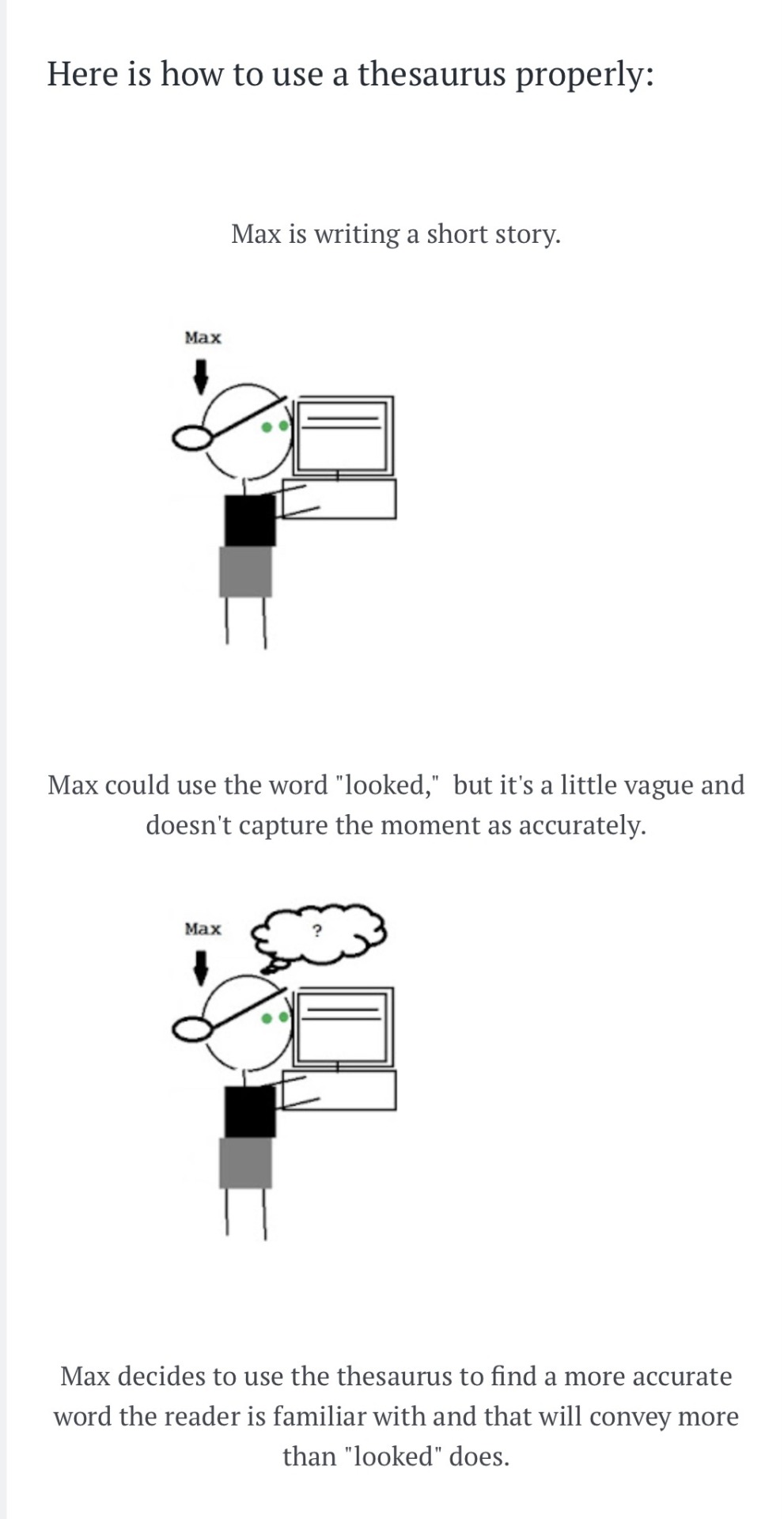
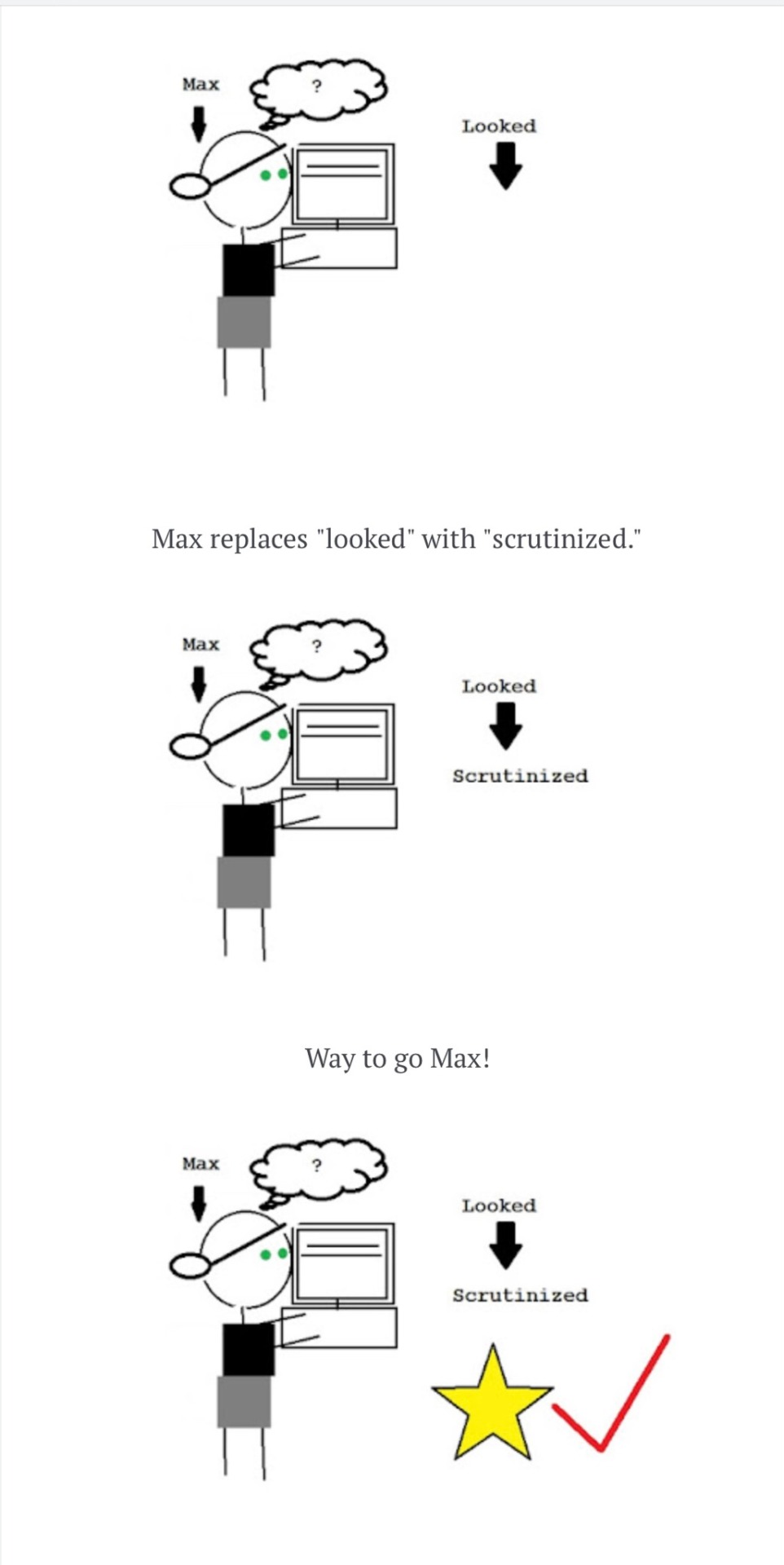
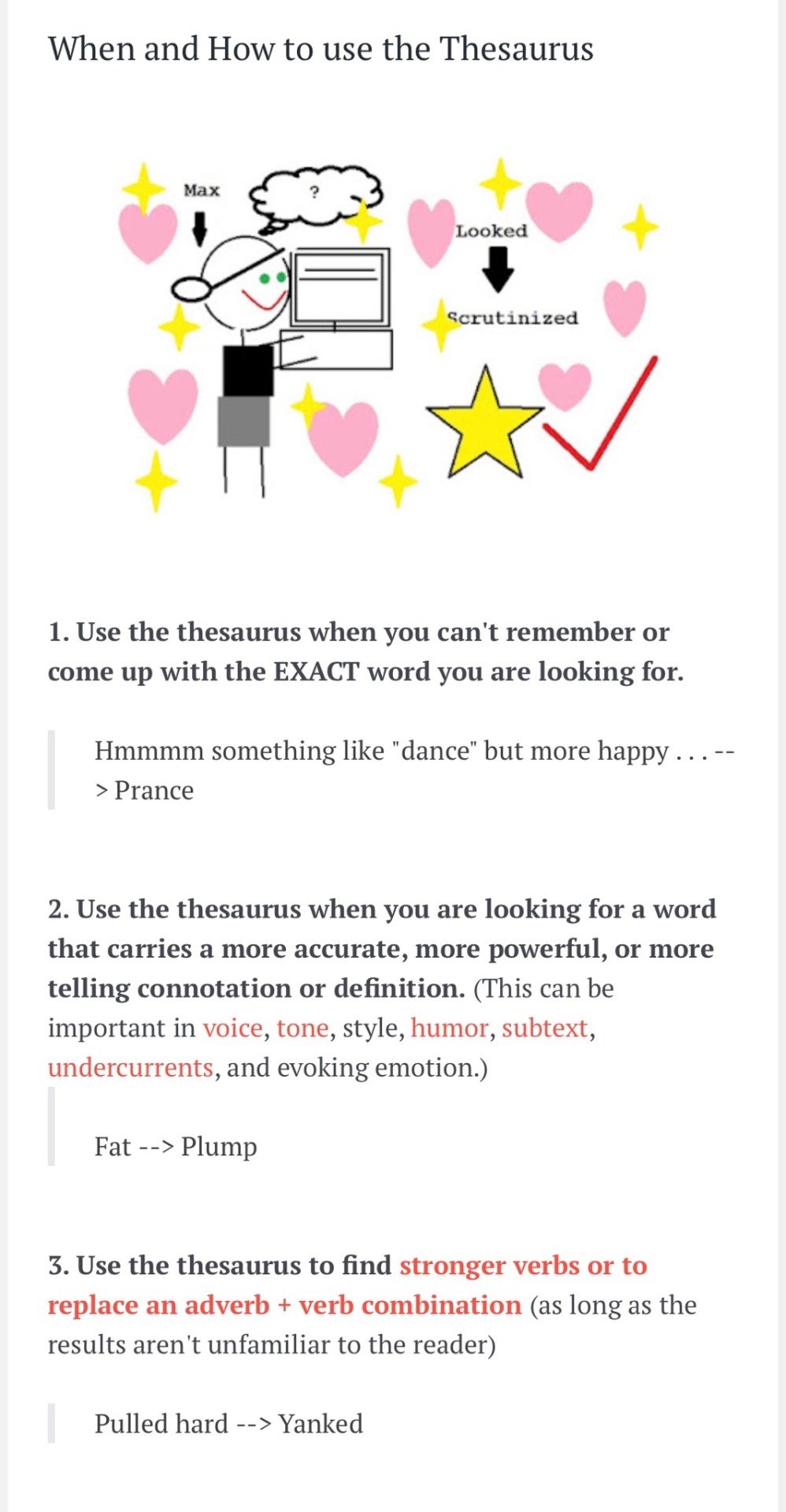
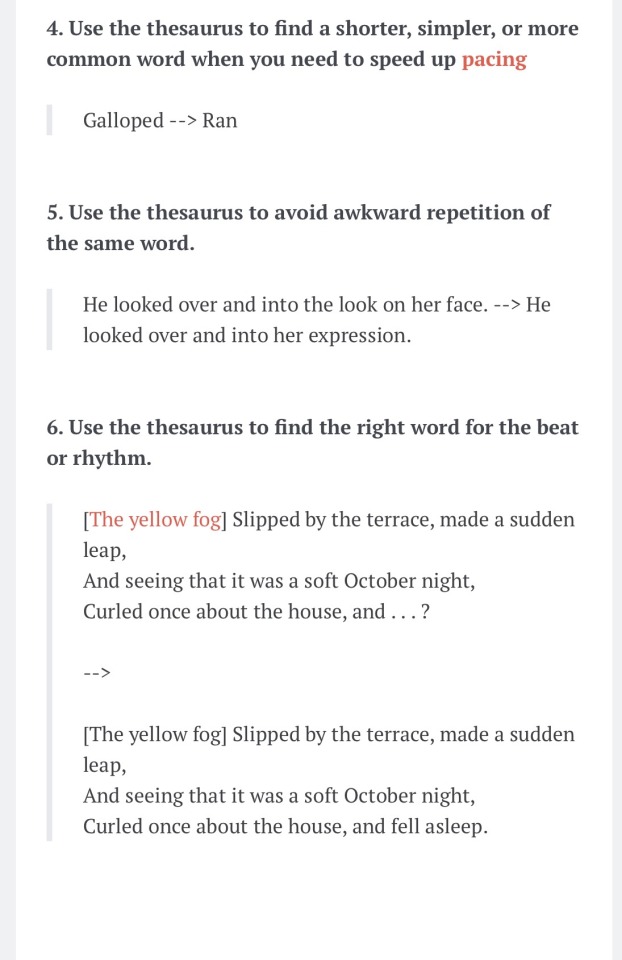
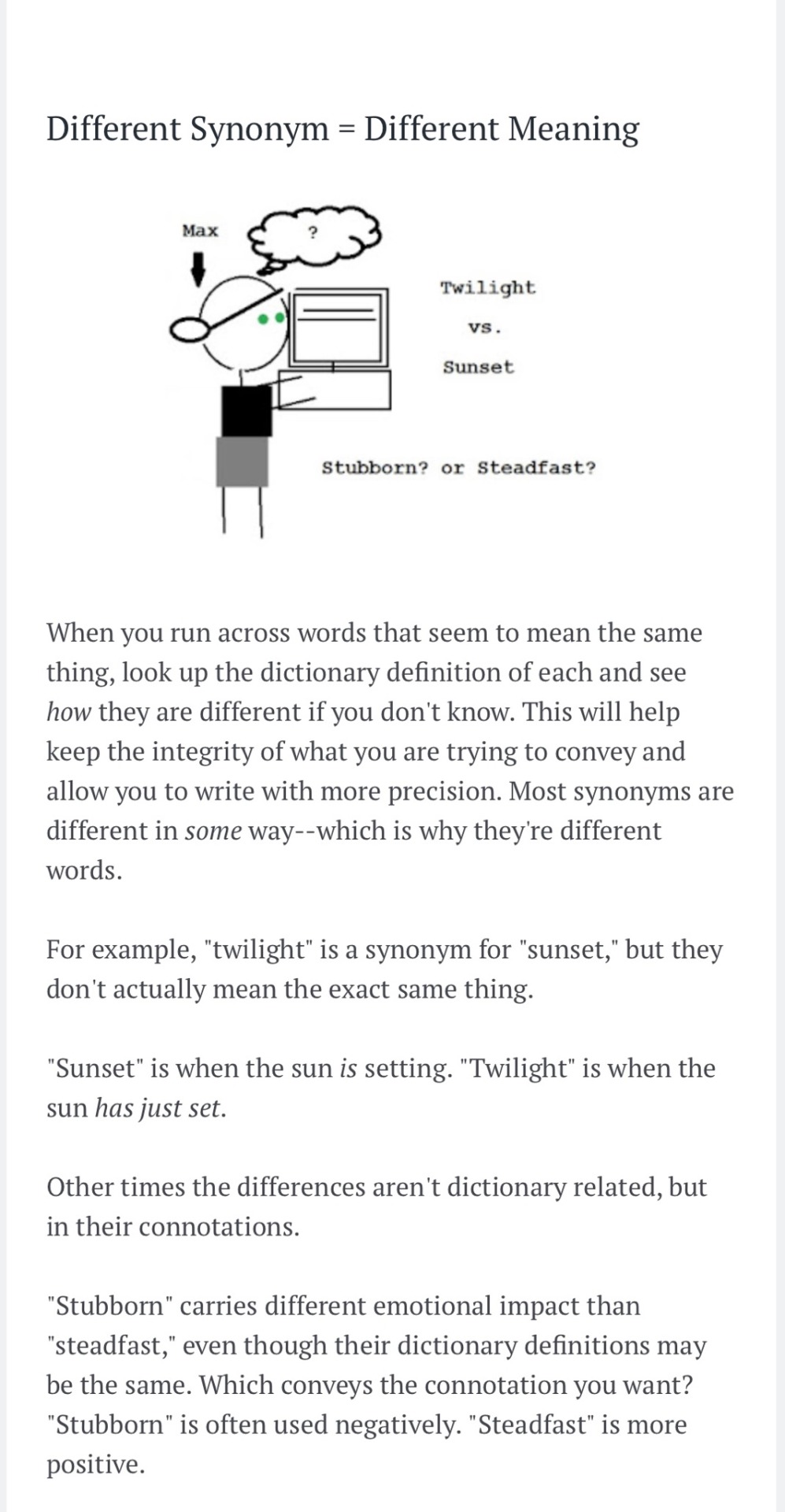
If you want to look at the original article…
https://www.septembercfawkes.com/2018/08/how-to-use-thesaurus-properly.html
10K notes
·
View notes
Text
Can't be sincerely dark without being called edgy, can't be sincerely emotional without being called melodramatic, can't be sincerely silly without being called stupid. They're gonna hate every emotion you put in your art no matter what so make it anyway and be as sincere as you can be
77K notes
·
View notes
Text
If you're a writer you're supposed to write a lot of bullshit. It's part of the gig. You have to write a lot of absolute garbage in order to get to the good bits. Every once in a while you'll be like "Oh, I wish I hadn't wasted all that time writing bullshit," but that's dumb. That's exactly the same as an Olympic runner being like "Oh, I wish I hadn't wasted all that time running all those practice laps"
56K notes
·
View notes
Text
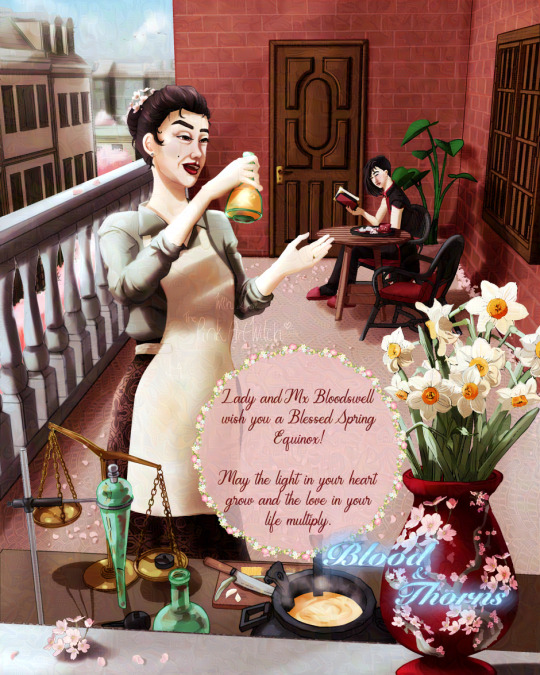
From me to you, I hope your Spring Equinox was a good one! It's been quite chaotic here, but mostly good I would say as the temperature is starting to rise and we're seeing the sun more often. I can't wait for cherry blossom season! It's one of my favourite times of the year :)
Just a few more pages for chapter 3! Thank you to everyone who's been reading along, and a special thank you to all my subscribers! You make this so special and I am so grateful for each one of you. I may take a day off once chapter 3 is done, but that will be announced next week.
Cheers!
8 notes
·
View notes
Text
What's a bitch gotta do to find floor plans for REAL historical palaces and mansions and not fake ones people made up for Minecraft or to sell to Americans
1K notes
·
View notes
Text
The Role of Each Plot Point
In film formula, each plot point has a very specific role. This post is a follow-up to the previous you can read here, where we talked about how every plot point should contribute to your protagonist’s arc. Now, we’re going to look into what these plot points are, and how they contribute to your protagonist’s arc.
Intro:
To begin, we can’t see how a character grows by the end if we don’t know how they started. The very first point of your story should be what we call the “normal world”. Within this point, there should be a small conflict for the protagonist to overcome to demonstrate their strengths and hint at their weaknesses, and should ideally foreshadow the inciting incident.
For example, in Tangled, Rapunzel argues with her mother about going out to see the floating lights on her birthday, and we see that she is thoughtful and kind, but also naïve and bullied by mother Gothel.
This smaller conflict foreshadows the inciting incident, where Flynn will break into the tower and she’ll bully him into taking her to the lights.
Inciting Incident:
This point is the beginning of your character’s arc. It is something that happens to your protagonist (so not a choice that they make, yet) and completely flips their world on their head, pulling them outside of their comfort zone. It is the start to conflicts they will eventually have to face, forcing them to change.
Following our example, Flynn breaks into the tower (something that happens to Rapunzel), and agrees to take her outside of her tower (quite literally leaving her comfort zone by venturing out into the dangerous/uncertain world).
First Act Turn:
This is the first choice your character makes. This choice is spurred on by the inciting incident and relates directly to how your character wants to achieve their goals/objective.
Fun and Games:
Rising action, typically with an undercurrent of success. In Tangled, this is the part they’re exploring the world and getting closer. They’re still facing conflicts (running from goons, getting trapped in the cave, etc.) but they are succeeding.
Midpoint:
I tend to think of this as the “beginning of the end”. This point is another thing that typically happens to your protagonist that is a direct result of the choice they made at the first act turn. It looks first like a success—where the protagonist has achieved their objective—before it is reversed and they lose everything. This point is the largest raise of stakes in the story.
In Tangled, this is the point Rapunzel gets to see the lights and is just about to kiss Flynn when the goons catch up to them, and she believes he betrays her. It is a victory, followed by a devastating loss.
Things Get Worse:
Rising action but with an undercurrent of everything going wrong. Rapunzel is brought back to her tower, Flynn is locked in jail and set to be hanged.
Second Act Turn:
This is another major choice your character makes responding directly to what happened at the Midpoint. What’s important here is that the character takes a new strategy to fulfill their goal. This choice should feel desperate and offer a slim chance of success.
In Tangled, Rapunzel confronts her mother and chooses not to return back to her life in the tower.
Crisis:
Responds directly to the choice the character made. It places them in a dangerous situation (high stakes, physical or moral jeopardy) where the probability of their failure is high. This is the point the protagonist recognizes their unconscious need.
Rapunzel is locked up in the tower and Flynn gets stabbed trying to get to her.
Climax:
One last decision! The protagonist is confronted by their worst fear and must act, usually requiring some sort of sacrifice and reveals to us who they have become over the course of the story. This choice will also determine your theme.
Rapunzel tells mother Gothel that if she allows her to heal Flynn, she'll stop trying to get away from her, obvious sacrifice. Then, Flynn decides to cut her hair, sacrificing his own hope of survival while killing Mother Gothel for good to save Rapunzel.
Resolution:
Shows the consequences of the choice made in the climax (good and bad). Draws remaining questions to a close, and demonstrates the way the world has changed due to what happened. How the world is now (good or bad) carries a statement on whether the character made the right or wrong choice—which is the lasting impression of your theme.
In Tangled, Flynn is healed and Rapunzel reunites with her parents and takes on her role as the princess.
193 notes
·
View notes
Text
Nineteen writing tips I've picked up / been told -
~ ( Disclaimer : I am not telling you what to do or what you can and cannot do. Writing is personal, stylized, and a vessel for self-expression. Your writing is YOURS suga, and however you do it is beautiful. This post is just some advice I've found insightful, and maybe you could too. ᓚᘏᗢ ) ~
★ If you cannot tell if your story is connecting - read it out loud
★ If you have a really good idea, and you are practically itching to write it right now - then do !! Jot down that amazing idea and then connect all those frayed wires.
★ If you want the reader to be attached to a character - let that character be imperfect. Let them be selfish, overzealous, clumsy, or naive. / Let their good traits have bad days.
( examples include, but are not limited to; )
Savior-complex: Pushing too hard to help someone and hurting them more.
Patience: Being left high and dry.
High tolerance: Other characters overestimating their ability to tolerate anything.
Selfless: 'Character X' putting themselves after others to the point that 'Character Y ' has to forget about themselves to be able to keep 'Character X' afloat.
Bonding: Building an unhealthy reliance with one another.
★ If you want a character to be [emotionally] complex - let their emotions conflict. / Let morals be mixed into their dilemma (if they have one). / Try not to let the plot overshadow the characters inner conflict.
★ If you have a work in progress that you want to finish, but can't find motivation to - that's okay !! You're allowed to wait, and you're allowed to come back later with a bajillion ideas !!!
★ If you have plot holes - don't overwork yourself trying to getting rid of them !!! There are plot holes in stories that are TRUE, it'd be impossible to fix all plot holes.
★ If you are writing first person / thought - give their thought process a voice. How do they think? How do they structure their sentences? What phrases do they often use?
★ If you are writing stuttering, people rarely ever stutter "L-l-like..... T-t-this." - Stuttering is usually the repeating of the same part in a sentence, going back on it, like they're editing their sentence. / Space in between words, breathing, preparing. / Filler words !!! "Oh- I- I just-.. uhmm.. I was- I was just giving.. an example."
★ Don't 'CAPITALIZE' dialogue to show that they are yelling / shouting / screaming - we can convey yelling with how we phrase their speech, exclamation marks, etc.
★ Don't be afraid to make a character have hate for another character - nobody can like everybody. It can add personality and makes the character all the more realistic for the reader
★ Sensory details are always great to have in your work !!! But in action scenes - having less sensory detail is almost always more immersive.
"Why?", Because if a character is in an active sword fight with another character, their focus wouldn't be on the way the moonlight spills through the mesh curtains, or how their hand feels against the handle.
Putting those details before or after is so much more realistic and lets the reader grab and hang on to what you have to say, instead of a zip line with loose handlebars.
★ Don't be afraid to use tropes - it's not cheating in the slightest, you are the one writing it. Nobody else could've used the trope like you would. / You can use tropes to your advantage; readers find security in tropes, let the reader think "I see this often, they'll _____" and then totally 180 them.
★ Kill "Show. Don't tell." - you can do both !! It will be right either way, but always choosing one or the other disengages the reader from certain aspects.
★ Kill "Said is Dead" - you can lack the word "said" just as much as you can overuse it !!!
★ It isn't just about if a character coaxed, agreed, revealed, or proposed the dialogue. - It's also about how they did it. Was it soft? Sand papery? Rich? Confident? Hesitant?
★ Chaos doesn't solve 'everything' - but it solves a boatload.
★ Your story doesn't have to have a happy ending for the main character.
★ If a scene feels random or forced - check if you have motive for the scene
★ If you think of yourself as a bad writer, or you're self-conscious of your writing, remember - that no matter what, you will always be a better writer than Colleen Hoover.
~ ( Reminder : If you live by any of the things I mentioned, this is no hate to you. I am not shunning you, nor the way you write. Your current writing and your future growth is beautiful. But, if you like Colleen Hoover you can block me. ᓚᘏᗢ ) ~
218 notes
·
View notes
Text
Too many writers are using generative 'AI' to make their book covers, so I've written a guide on how to make your own cover for free or cheap without turning to a machine.
If you can't afford to pay an artist, you CAN make your own!
I hope this is a helpful overview that covers the basics and points to some free resources.
25K notes
·
View notes
Text
How Readers (sometimes) Misinterpret Authors’ Intentions
1. Intentional Ambiguity vs. Overthinking
Author’s Intent: “I left this scene open to interpretation so readers could make their own conclusions.” Reader’s Take: “This tiny detail about the red mug represents the protagonist’s repressed anger about societal norms.” Reality: Sometimes a red mug is just a red mug.
2. Symbolism Gone Astray
Author’s Intent: “This flower represents hope.” Reader’s Take: “This flower symbolizes death because it withers when plucked, and the author is making a grim commentary on human frailty.”
3. Romanticizing the Villain
Author’s Intent: “This antagonist is morally complex but undeniably a terrible person.” Reader’s Take: “They’re just misunderstood.”
4. When Flaws Are Misread as Virtues
Author’s Intent: “This character is selfish and manipulative, even if they have a charming exterior.” Reader’s Take: “They’re just confident and know what they want!” Reality: There’s a fine line between writing a layered character and readers excusing all their bad behavior.
5. The “Is This About Me?” Problem
Author’s Intent: “This story is completely fictional and inspired by nothing in my personal life.” Reader’s Take: “So the protagonist’s struggles with their mother must be based on the author’s own issues, right?” Reality: Nope.
6. Missing the Subtext
Author’s Intent: “This character is secretly in love with their best friend, and I hinted at it through subtle gestures and unspoken moments.” Reader’s Take: “Why didn’t you just make them kiss?” Reality: Not everyone picks up on the nuances of subtext, and that’s okay.
7. Fixating on Small Details
Author’s Intent: “This throwaway line is just a bit of flavor to make the world feel more real.” Reader’s Take: “This line holds the key to unraveling the entire plot!” Reality: …It doesn’t.
8. Ignoring the Author’s Voice
Author’s Intent: “This story has an unreliable narrator, so everything they say should be questioned.” Reader’s Take: “This narrator’s perspective is 100% accurate, and the author must share their views.” Reality: Narrators and authors are not the same person.
9. Forcing a Moral Where There Isn’t One
Author’s Intent: “This is a story about human nature, not a moral lesson.” Reader’s Take: “The author clearly wants us to see this as a cautionary tale about the dangers of ambition.” Reality: Not all stories are meant to be prescriptive.
10. “The Author Didn’t Mean That”
Author’s Intent: “Actually, I did mean that.” Reader’s Take: “This interpretation is better than what the author said.” Reality: Sometimes readers assume their interpretation supersedes the author’s, and while that’s valid for them, it’s not always accurate.
Once a story is published, it belongs as much to the readers as it does to the author. Misinterpretations are inevitable, but they can also be insightful. They show how stories evolve and take on new meanings.
But if your readers are wildly off the mark, remember:
1. You don’t owe anyone an explanation.
2. It’s okay to clarify your intentions, but it’s also okay to let them speculate.
148 notes
·
View notes
Text
Oh so ur a writer?? Prove it. Drop the last sentence of ur wip in the tags
#“You know her#” he answered#“never quite tells you what she’s thinking.”#this WIP kidnapped me last November#and now I've lost most of my steam#but i'm SO CLOSE to finishing it!!#Exes#If I hunker down I could be done by the end of February#but considering my life#it probably won't happen (for good reasons)#but once it's done I get to edit Restructure!#So!!#GIT ER DONE
46K notes
·
View notes
Text
I'm going to have to say this multiple times, but you do not have to use Generative AI to create background characters, locations, or plot ideas. There are hundreds of writing generators out there lovingly crafted for free by folks who want nothing more than to give you tools for writing. Please just search for them.
You do not have to use the Unethical Thieving Machine That Burns Down A Rainforest to help you write. There are so many resources out there that will strengthen your writing, not weaken it. You owe it to yourself to do better.
9K notes
·
View notes
